Hi there, fellow Shih Tzu parents! I’m Dr. Candy Akers, and today, we’re going to talk about an important topic that’s often overlooked – Shih Tzu Eye Health. As a holistic veterinarian, I’ve seen my fair share of eye conditions in Shih Tzus, and I want to share my knowledge with you to help prevent these issues from occurring in your beloved pets.
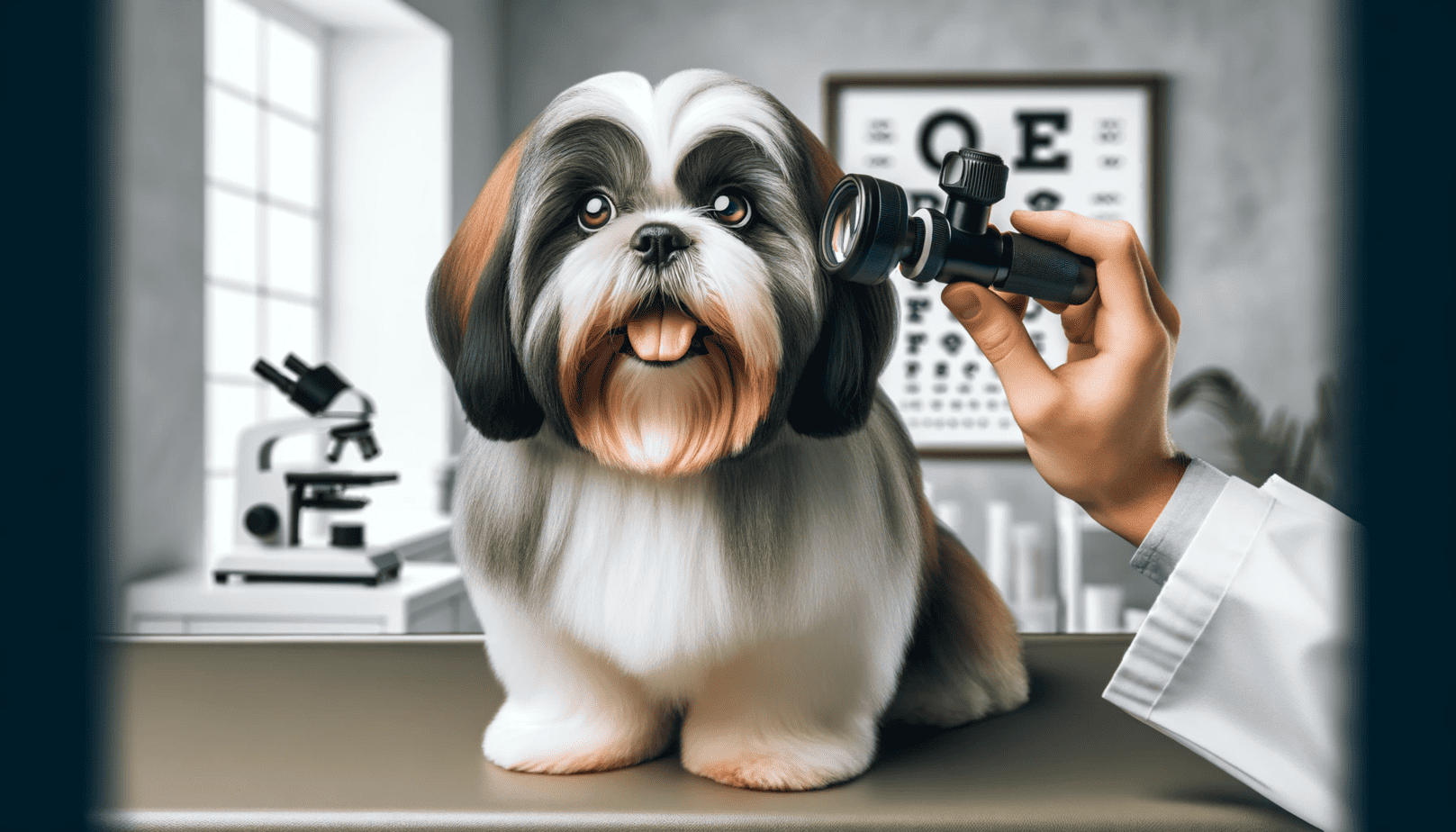
Our adorable Shih Tzus have a unique eye structure that makes them prone to specific eye health issues. But don’t worry, with the right care and preventive measures, we can ensure that our furry friends maintain good eye health throughout their lives. From understanding the common eye problems that Shih Tzus face to knowing the best dietary and environmental practices to prevent these issues, I’m here to guide you every step of the way.
So, let’s get into the world of Shih Tzu Eye Health – Conditions & Solutions From Vet. Together, we can ensure our Shih Tzus have a clear vision and a happy, healthy life. Stay tuned for some practical Shih Tzu eye care tips, insights into common eye conditions in Shih Tzus, and effective veterinary solutions for Shih Tzu eye problems.
When it comes to your Shih Tzu’s eye health, one thing to remember is that their unique eye structure can make them more susceptible to certain eye issues. Understanding this structure can be the first step in ensuring your furry friend’s eyes stay healthy and vibrant.
Understanding Shih Tzu Specific Eye Structure
Shih Tzus are known for their large, round, and expressive eyes. This characteristic, while endearing, also means that their eyes are more exposed than in other breeds, making them vulnerable to various eye problems. The size and shape of their eyes, along with their shallow eye sockets, can lead to dryness, irritation, and injury.
Their eyelashes, which are typically long and lush, can also contribute to eye health issues. In some cases, the lashes may grow inwards, causing irritation to the cornea. This condition, known as distichiasis, can lead to redness, excessive tearing, and even corneal ulcers if not treated properly.
Another unique feature of Shih Tzu’s eyes is their brachycephalic (short-nosed) facial structure. This can lead to an issue known as “tear staining,” where the fur under their eyes becomes discolored due to excessive tearing. The short nasal passage can hinder proper tear drainage, causing the tears to spill onto their face.
Additionally, Shih Tzus have a relatively loose skin around their eyes. This can lead to entropion, a condition where the eyelids roll inward, causing the eyelashes to rub against the cornea. This can be extremely uncomfortable for your pet and may lead to more serious eye health problems if not treated promptly.
Understanding these unique aspects of your Shih Tzu’s eye structure can help you be more vigilant about their eye health. Regular check-ups with your vet and a good eye-care routine can help prevent many of these issues and ensure that your Shih Tzu’s eyes remain as charming and expressive as ever.
Remember, as a pet parent, the health of your Shih Tzu’s eyes is in your hands. By understanding their unique eye structure, you can take the necessary steps to keep their eyes healthy and prevent any potential eye conditions from developing.
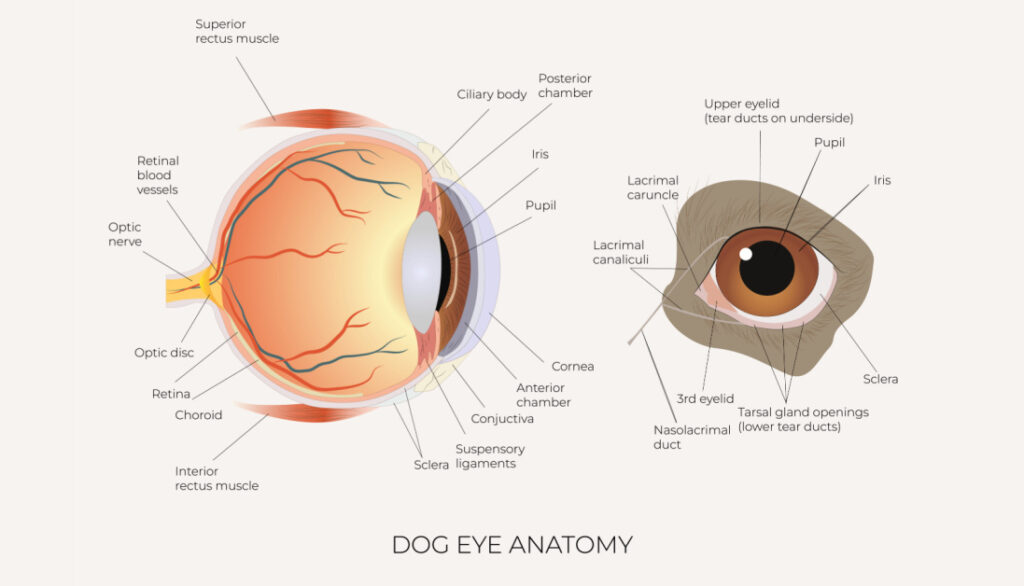
Common Eye Issues In Shih Tzu
As a veterinarian, I often come across various eye health issues in Shih Tzus. Their unique eye structure makes them more susceptible to certain conditions. Understanding these Shih Tzu eye health – conditions & solutions from vet can help you ensure the best care for your furry friend.
One of the most common issues is Corneal Ulcers. This condition occurs when the outer layer of the cornea gets damaged. Shih Tzus, with their prominent eyes, are particularly prone to this injury. Symptoms include excessive tearing, redness, and squinting. If left untreated, it could lead to a serious infection or even loss of vision.
Another prevalent condition is Keratoconjunctivitis Sicca (KCS) or Dry Eye. This is characterized by inadequate tear production, causing dry, irritated eyes. It’s common in Shih Tzus due to their brachycephalic (short-nosed) structure. Signs to look out for include redness, discharge, and constant scratching at the eyes.
Distichiasis is also common in Shih Tzus. This condition involves the growth of an extra row of eyelashes that rub against the cornea, causing irritation. Symptoms often include excessive blinking, tearing, and squinting.
Finally, Progressive Retinal Atrophy (PRA) is a genetic condition seen in this breed. It affects the retina, leading to gradual vision loss. Initially, dogs may struggle to see in dim light but as the condition progresses, they may lose their sight completely.
While these conditions sound scary, remember that Shih Tzu eye health – conditions & solutions from vet are available. Timely veterinary intervention and appropriate treatment can help manage these issues effectively.
- Corneal Ulcers: Topical antibiotics, pain relief, and sometimes surgery
- Keratoconjunctivitis Sicca (KCS): Artificial tears, immune-suppressing eye drops, and in severe cases, surgery
- Distichiasis: Removal of the extra eyelashes through electrolysis or surgery
- Progressive Retinal Atrophy (PRA): Unfortunately, there’s no cure for PRA, but antioxidants and other nutritional supplements can help slow the progress
Remember, regular check-ups and early detection are key in managing these conditions. If you notice any changes in your Shih Tzu’s eyes, don’t hesitate to consult your vet.

Nourishing Your Dog’s Vision: Essential Nutrients for Eye Health
Ensuring your Shih Tzu gets the right nutrients for optimal eye health is essential for maintaining clear vision and preventing age-related issues. Natural, nutrient-rich foods and supplements can play a key role in supporting their eyesight. From vitamin A-packed freeze-dried liver treats to antioxidant-rich blueberries and targeted supplements like Eyeplex by Standard Process, there are several ways to nourish your dog’s eyes. In this section, we’ll explore how these powerful ingredients contribute to long-term vision health and overall well-being.
Eyeplex by Standard Process
Eyeplex by Standard Process is a specialized supplement designed to support your Shih Tzu’s eye health with a blend of essential nutrients. Formulated with key vitamins, minerals, and antioxidants, Eyeplex helps protect against oxidative stress, supports retinal function, and promotes overall vision health. Ingredients like vitamin A, vitamin C, and zinc contribute to maintaining strong eyesight, while whole food ingredients provide additional phytonutrients for cellular protection. Adding Eyeplex to your Shih Tzu’s diet can be especially beneficial for aging dogs or breeds prone to eye conditions, offering targeted nutritional support to keep their vision sharp and healthy for years to come.
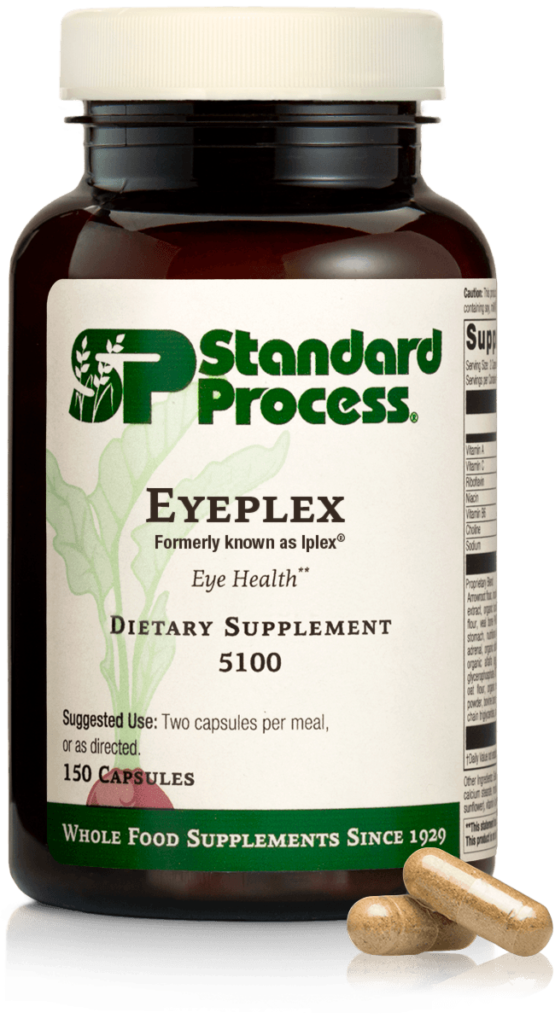
Freeze-Dried Blueberries
Freeze-dried blueberries are a powerhouse of antioxidants that can help protect your Shih Tzu’s eyes from oxidative stress and age-related damage. Rich in vitamins C and E, as well as anthocyanins, these tiny but mighty berries help combat free radicals that can contribute to eye diseases like cataracts and macular degeneration. Incorporating freeze-dried blueberries into your dog’s diet provides a natural and delicious way to support retinal health, reduce inflammation, and promote overall vision longevity. Plus, they’re a low-calorie, dog-friendly treat that makes a great addition to a balanced diet for long-term eye health.
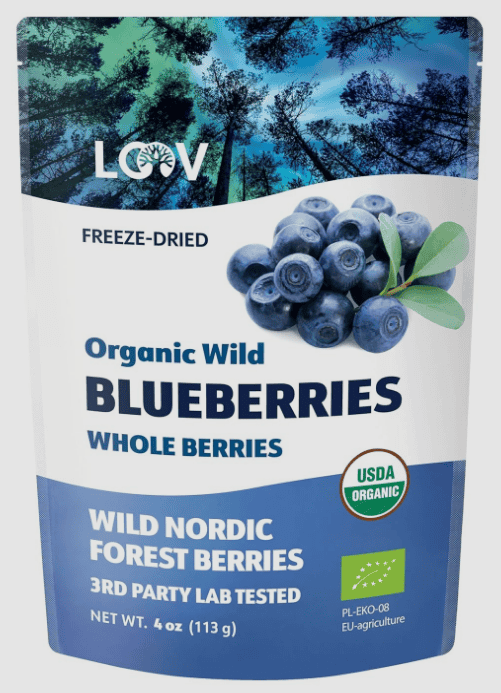
Freeze-Dried Liver
Freeze-dried liver treats are an excellent natural source of vitamin A, an essential nutrient for your Shih Tzu’s eye health. Vitamin A plays a crucial role in maintaining good vision, especially in low-light conditions, while also supporting overall immune function and skin health. Since liver is rich in bioavailable vitamin A, incorporating freeze-dried liver treats into your dog’s diet provides a convenient and nutritious way to promote optimal eye function. Just be sure to feed them in moderation, as excessive vitamin A can lead to toxicity. Adding these nutrient-packed treats to your pup’s routine is a simple, tasty way to support their long-term vision and well-being!
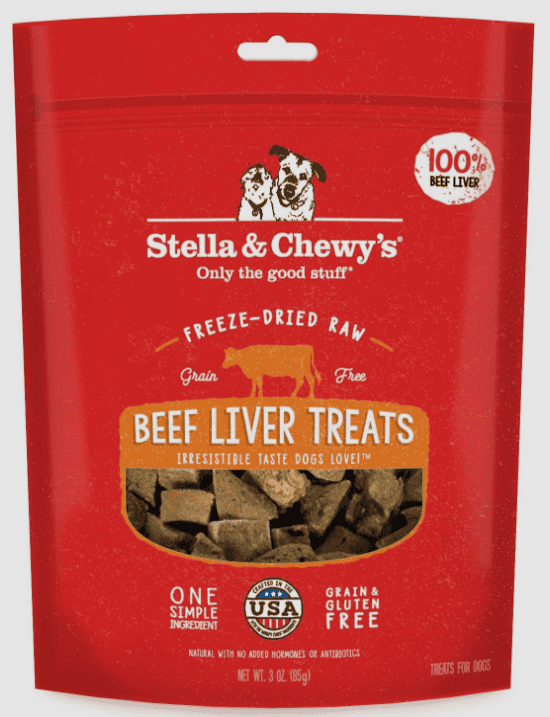
By prioritizing your Shih Tzu’s eye health through a balanced diet and nutritional supplements, you can help prevent many common eye issues. These simple steps can go a long way in ensuring your pup’s eyes stay healthy and clear for years to come.
Environmental Hygiene To Reduce Eye Problems
When it comes to maintaining your Shih Tzu’s eye health, a key factor often overlooked is the environment in which your pet lives. Environmental hygiene plays a significant role in preventing eye problems and ensuring overall health. Here are some simple yet effective measures you can take to ensure a safe and clean environment for your Shih Tzu.
Indoor Air Quality
Indoor air quality is a crucial aspect of environmental hygiene. The air your Shih Tzu breathes should be free from pollutants and allergens that can cause eye irritation and other health issues. Here are some tips to improve indoor air quality:
- Regularly clean and vacuum your home to eliminate dust and pet dander.
- Consider using an air purifier, especially in rooms where your Shih Tzu spends most of its time.
- Avoid smoking indoors as it can irritate your pet’s eyes and respiratory system.
- Ensure there’s adequate ventilation in your home to circulate fresh air.
Sprays, Diffusers, Candles, Incense
While sprays, diffusers, candles, and incense can make your home smell good, they can also cause eye irritation in Shih Tzus. Many of these products contain chemicals that can be harmful to your pet’s eyes. Here’s what you can do:
- Minimize the use of aerosol sprays and scented candles around your pet.
- If using a diffuser, make sure it’s in a place where your Shih Tzu can’t directly inhale the mist.
- Opt for pet-safe alternatives, such as unscented candles or natural essential oils, but still use them sparingly.
Remember, your Shih Tzu’s eyes are more sensitive than yours. What might seem like a faint smell or a soft light to you could be overwhelming for them. Always consider your pet’s comfort and health when making decisions about your home environment.
By maintaining a clean, safe, and comfortable environment, you can significantly reduce the risk of eye problems in your Shih Tzu. It’s an easy and effective way to contribute to your pet’s overall eye health and well-being.

Routine Eye Care & Maintenance
Keeping your Shih Tzu’s eyes healthy involves regular care and maintenance. This routine is essential because this breed is prone to certain eye issues due to their specific eye structure. Let’s break down some of the critical steps you need to follow to ensure optimal eye health for your Shih Tzu.
Daily and Weekly Care
Your Shih Tzu’s eyes should be checked daily for any signs of redness, swelling, or discharge. If you notice any of these symptoms, it’s crucial to consult with your vet promptly to prevent any potential eye conditions from worsening.
Every week, you should gently clean your Shih Tzu’s eyes using a soft, damp cloth or a dog-specific eye wipe. This helps remove any dirt or debris that may have accumulated, reducing the risk of irritation or infection. However, avoid using any human products as they may contain ingredients that can harm your dog’s eyes.
Monitoring Hair and Nail Length
Long hair around the eyes can cause irritation and injury, leading to various Shih Tzu eye health issues. Regularly trimming the hair around your Shih Tzu’s eyes can prevent these problems. You can do this at home with a pair of round-tip scissors or have a professional groomer do it for you.
Similarly, maintaining your Shih Tzu’s nail length is also essential. Overgrown nails can scratch the eyes accidentally, leading to serious injuries. Regular nail trims help prevent this risk.
Bath Frequency
Regular baths can help keep your Shih Tzu’s eyes clean and free from irritants. However, it’s essential to ensure that water or shampoo doesn’t get into your dog’s eyes during bath time as this can cause irritation. A good practice is to use a tearless dog shampoo and avoid the eye area as much as possible.
Remember, an essential part of maintaining your Shih Tzu’s eye health is regular vet check-ups. Your vet can identify any potential eye problems early and provide appropriate treatment for Shih Tzu eye disorders. In addition, they can give you more specific advice on how to take care of your Shih Tzu’s eyes based on your dog’s individual needs.
In conclusion, maintaining your Shih Tzu’s eye health requires daily attention and care. By following these steps, you can help prevent common eye conditions and ensure your Shih Tzu’s eyes remain healthy and clear.
Frequently Asked Questions
1. What are common eye conditions in Shih Tzus?
Common eye conditions in Shih Tzus include cherry eye, corneal ulcers, dry eye, and cataracts.
2. How can I prevent eye problems in my Shih Tzu?
To prevent eye problems in your Shih Tzu, make sure to keep their face clean, trim the hair around their eyes, and avoid exposing them to irritants such as smoke or chemicals.
3. What are the symptoms of eye infections in Shih Tzus?
Symptoms of eye infections in Shih Tzus may include redness, swelling, discharge, excessive tearing, squinting, and frequent blinking.
4. Can I use over-the-counter eye drops for my Shih Tzu’s eye problems?
No, it is not recommended to use over-the-counter eye drops for your Shih Tzu’s eye problems without consulting a vet. Some eye drops may contain ingredients that can be harmful to dogs.
5. When should I seek veterinary care for my Shih Tzu’s eye issues?
You should seek veterinary care for your Shih Tzu’s eye issues if the symptoms persist for more than a day, if there is severe pain or discomfort, or if there is any change in your dog’s vision.
